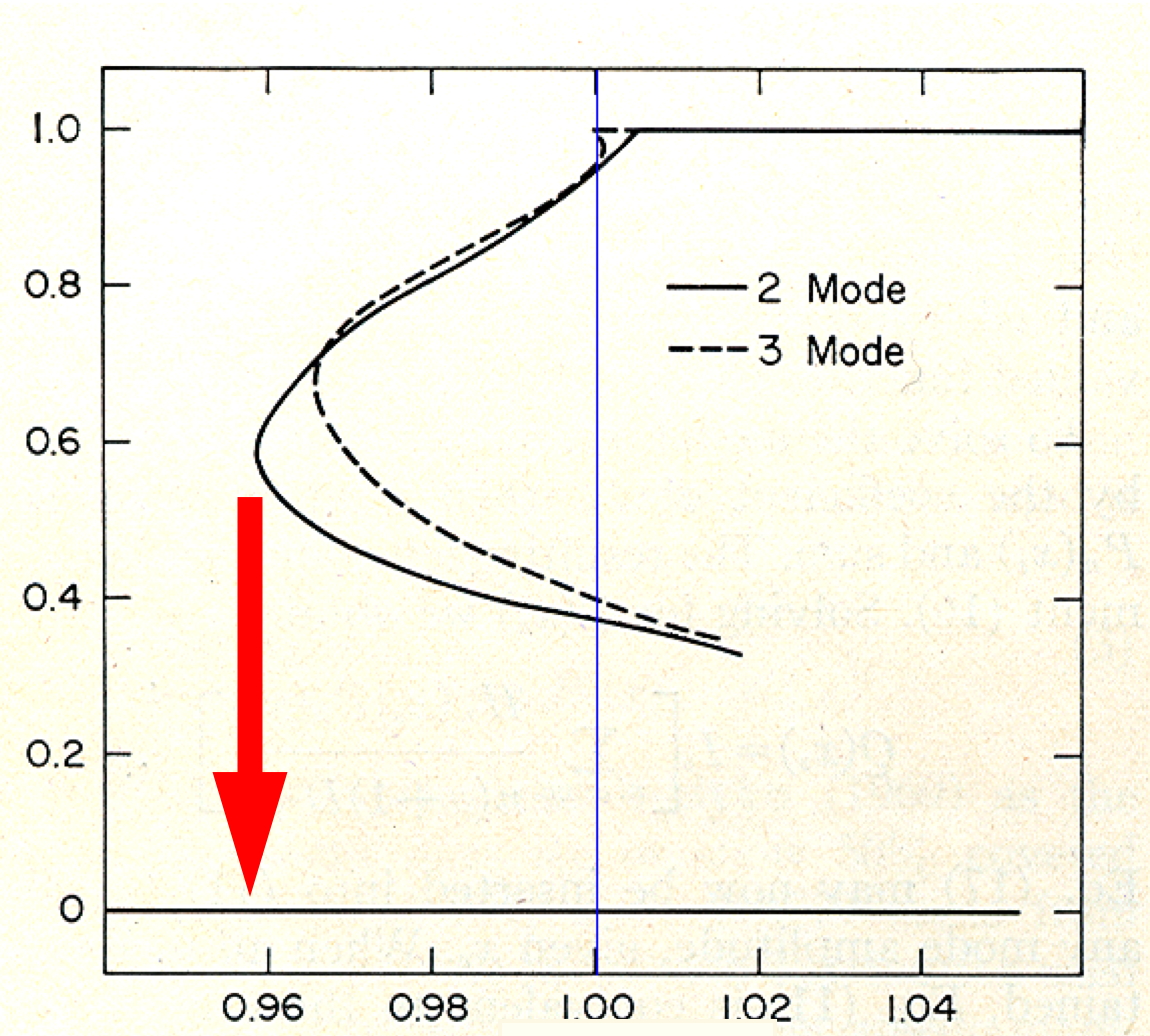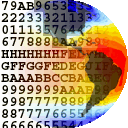Office hours: MW 11 am - noon (U.S. Central Time)
If you are reading a printed copy of this page, you will be able to
find this syllabus and other course messages/notes/updates on the
course webpage: www.meteor.iastate.edu/classes/mt452/
The course is offered on the undergraduate level (452)
and graduate level (552). The two are of course nearly identical,
with the only difference beting additional expectations of 552
students.
Activity Group
and
Course Period
|
Dates
|
Activities
|
Group 1

|
24 August - 1 September
2 - 9 September
|
-----
- TOPIC 1 -
Introduction and Zero-Dimensional Energy Balance Models
- TOPIC 2 -
Climate Sensitivity
- TOPIC 3 -
Parameterization of Outgoing Infrared Radiation
-----
- TOPIC 4 -
Parameterization of Albedo
- TOPIC 5 -
Global Energy Balance Models (GEBMs)
|
Group 2

|
10 - 21 September
22 - 25 September
|
-----
- TOPIC 6 -
Feedback - Introduction
- TOPIC 7 -
Feedback - Global-Energy-Balance-Model Examples
- TOPIC 8 -
One-Dimensional Global Energy Balance Models: Introduction
- TOPIC 9 -
Radiative Constituents for 1-D GEBM
-----
Problem Set 1 -
Due: 16 September 2015
Problem Set 2 -
Due: 30 September 2015
|
Group 3

|
26 September - 2 October
3 - 9 October
|
-----
- TOPIC 11 -
One-Dimensional (Latitudinal) EBMs: Introduction
- TOPIC 12 -
One-Dimensional (Latitudinal) EBMs: Solution
-----
- TOPIC 13 -
One-Dimensional (Latitudinal) EBMs: Quantitative Results
- TOPIC 14 -
One-Dimensional (Latitudinal) EBMs: Further Issues
EdGCM Project 1: Due 9 October 2015
Problem Set 3 -
Due: 15 October 2015
|
Group 4

|
10 - 19 October
|
-----
- TOPIC 15 -
Constraints on Dynamical Fluxes: Introduction
- TOPIC 16 -
Constraints on Dynamical Fluxes: Contributions to Total Flux F
- TOPIC 17 -
Constraints on Dynamical Fluxes: Flux Efficiency
EdGCM Project 2: Due 30 October 2015
Problem Set 4 -
Due: 4 December 2015
|
Group 5

|
20 - 26 October
27 October - 6 November
7 - 13 November
|
-----
-----
- TOPIC 20 -
Radiation: Plane-Stratified Atmosphere
- TOPIC 21 -
Radiation: Two-Stream Approximation
- TOPIC 22 -
Radiation: Semi-Gray Approximation
-----
- TOPIC 23 -
Radiative Equilibrium in the Simplified Model
- TOPIC 24 -
Pure Radiative Equilibrium vs. Observed Temperature Structure
EdGCM Project 3: Due 20 November 2015
|
Group 6

|
Due 9 December 2015
|
EdGCM Project 4
|
Exam

(Quote: H. J. Morowitz)
|
Wednesday
16 December 2015
7:30 - 9:30 am
|
Exam score and overall grades are here.
Example past
exam, with answers, for studying.
|
| Undergraduates
| - |
*** |
Graduates | -
|
| Problem sets | 20% | *** |
Problem sets | 15% |
Semester Test | 35% | *** |
Semester Test | 35% |
EdGCM Projects | 30% | *** |
EdGCM Projects | 25% |
Clim-Wx Presentation | 15% | *** |
Clim-Wx Presentation | 10% |
- |
- |
*** |
Review Paper | 15% |
The course grade is determined in part by how people do with respect to each
other and how the class as a whole has done. This gives a starting
point for assessing what each student has demonstrated with regard to
grasp of the material. The total score from tests, problem sets, etc.
is NOT judged on a scale of below 60 = F, 60 - 69 = D, etc. (Of course
a total score of 80, for example, will be no lower than a B-.)
You can view grades on
the test and for the course as a whole.
Email
I communicate frequently with the class by email. PLEASE start the
Subject: line for any emails to me with these words:
Climate Modeling
This will help me to find it in all the spam I get.
The default email
address I have for all Iowa State (ISU) students is their @iastate.edu address.
ISU students who prefer to use some other email address should follow one
of these two alternatives (the first is preferred):
- Follow the instructions to automatically forward your
iastate.edu email
to another system.
- Send to me by email your preferred address.
Choice 1 is preferable because it ensures that all email sent your
@iastate.edu address will get forwarded. This could be email for
other classes, from the Registrar's office, etc.
NOTE: When you are emailing me, please start the "Subject:"
line with "Climate Modeling:" so that I can find it easily in all the
spam I get.
Other Notes
Plagiarism is unacceptable! Consequently, you must
document the source of any piece of information that is not yours.
You may copy a phrase from a source, placing it in quotes and citing
the source.. However, it is strongly recommended that you use your
own words to explain an idea or result produced by someone else,
alhough you still must cite the source. For any documents you produce
for this class, you should
follow the style of American Meteorology Society journals (e.g.,
Journal of Climate) for the format of citations in the body of
the text and for the bibliography at the end. When using seb pages
for a presentation, you should acnkowledge the source by mentioning
its name. Please see me if you
have any questions.
I may be away on the following dates. Note that some
do not conflict with classes, but I am listing all my travel so you
know when I may not have email contact. Given the online nature of
this course, I may try to conduct class from my travel location, or I
will assign pre-recorded lectures. I will let you know in advance.
- 31 August - 2 September: Earth System Modeling Program: PI
meeting (Bethesda, MD).
- 14-18 September: IPCC Workshop on Regional Climate (São José dos
Campos, Brazil)
Other dates are possible, though I am trying to avoid any. I will
keep you posted.
Acknowledgements
Course development has been supported in part by grants from the Iowa
State Council on International Programs and the ISU College of Liberal Arts and
Sciences Computer Advisory Committee.
Major parts of this course are derived from one I took in graduate
school that was developed and taught by Prof. Peter Stone (MIT), to
whom I am indebted. Any mistakes in interpretation of the material
are my own.
Mykola Sarazhynskyy of a former ISU Extension programmer spent
considerable time showing me how to access the Breeze (now Adobe
Connect) environment and produce the original lecture modules (since
moved to YouTube). His patience is very much appreciated.
Chris Lennard at the University of Cape Town has provided valuable
help with testing the Adobe Connect nvironment, especially the
trans-Atlantic connection when that was part of the course. Thanks
also go to others at UCT who have given Chris
technical help with running everything, including EdGCM, and to Dave
Flory at Iowa State for similar help.
Academic Dishonesty
The class will follow Iowa State University’s policy on academic
dishonesty. Anyone suspected of academic dishonesty will be reported
to the Dean of Students Office. See
Academic
Misconduct page for further detail.
Disability Accommodation
Iowa State University is committed to assuring that all educational
activities are free from discrimination and harassment based on
disability status. All students requesting accommodations are required
to meet with staff in Student Disability Resources (SDR) to establish
eligibility. A Student Academic Accommodation Request (SAAR) form
will be provided to eligible students. The provision of reasonable
accommodations in this course will be arranged after timely delivery
of the SAAR form to the instructor. Students are encouraged to
deliver completed SAAR forms as early in the semester as possible.
SDR, a unit in the Dean of
Students Office, is located in room 1076, Student Services Building or
online at www.dso.iastate.edu/dr/. Contact SDR by e-mail at
disabilityresources@iastate.edu or by phone at 515-294-7220 for
additional information.
Dead Week
This class follows the Iowa State University Dead Week policy as noted
in section 10.6.4 of the
Faculty Handbook.
Harassment and Discrimination
Iowa State University strives to maintain our campus as a place of
work and study for faculty, staff, and students that is free of all
forms of prohibited discrimination and harassment based upon race,
ethnicity, sex (including sexual assault), pregnancy, color, religion,
national origin, physical or mental disability, age, marital status,
sexual orientation, gender identity, genetic information, or status as
a U.S. veteran. Any student who has concerns about such behavior
should contact his/her
instructor, Student
Assistance at 515-294-1020
or email dso-sas@iastate.edu, or
the Office of Equal Opportunity
and
Compliance at 515-294-7612.
Religious Accommodation
If an academic or work requirement conflicts with your religious
practices and/or observances, you may request reasonable
accommodations. Your request must be in writing, and your instructor
or supervisor will review the request. You or your instructor may
also seek assistance from
the Dean of Students Office
or Office of Equal Opportunity
and
Compliance at 515-294-7612.
Contact Information
If you are experiencing, or have experienced, a problem with any of
the above issues, email academicissues@iastate.edu.
Go to Climate Systems and
Analysis Group (UCT)
Go to Department of Environmental
and Geographical Science (UCT)
Go to Department of Geological & Atmospheric Sciences (ISU) Course
Listings
Go to Department of Geological & Atmospheric Sciences Homepage






